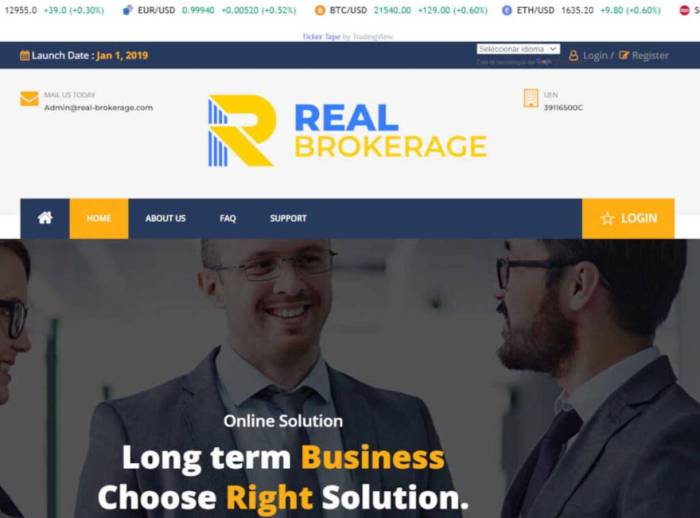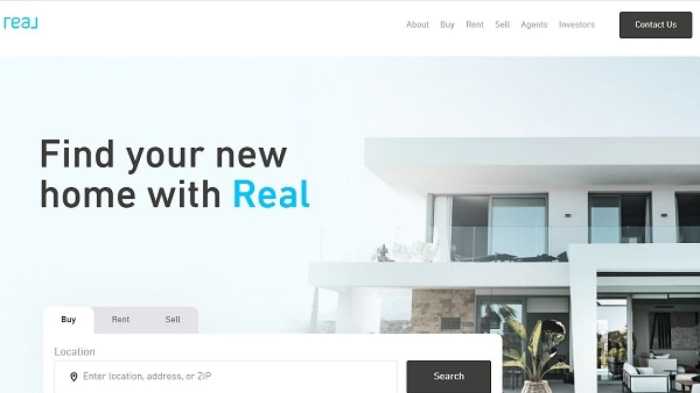Exploring the World of Real Brokerage

Delve into the intricate world of real brokerage, where properties and transactions intertwine to create a dynamic landscape. This article sheds light on the essence of real brokerage, offering a glimpse into its multifaceted nature.
From defining real brokerage to exploring the latest trends, this piece serves as a comprehensive guide for both newcomers and seasoned professionals in the real estate industry.
What is a real brokerage?
A real brokerage, in the context of real estate, refers to a firm or company that acts as an intermediary in property transactions between buyers and sellers. These brokerages typically have licensed real estate agents who facilitate the buying, selling, or renting of properties on behalf of their clients.
Role of a real brokerage in property transactions
Real brokerages play a crucial role in property transactions by providing expertise, guidance, and support throughout the buying or selling process. They help clients navigate the complexities of real estate transactions, ensuring that all legal and financial aspects are handled efficiently.
Services typically offered by a real brokerage
- Market Analysis: Real brokerages provide clients with in-depth market analysis to help them make informed decisions about buying or selling properties.
- Property Listings: They help clients list their properties for sale or rent, ensuring maximum visibility to potential buyers or tenants.
- Negotiation: Real estate agents at brokerages negotiate on behalf of their clients to secure the best possible deals.
- Legal Assistance: They offer legal assistance and guidance to ensure that all contracts and agreements comply with real estate laws and regulations.
- Property Management: Some real brokerages also offer property management services for clients who own rental properties but prefer not to handle day-to-day operations.
Types of real brokerages

When it comes to real estate brokerages, there are various types that cater to different needs and preferences of clients. Each type has its own set of advantages and disadvantages, making it important to understand the differences between them.
Traditional Brokerages
Traditional brokerages are the most common type and usually involve physical office locations where agents work. They provide a full range of services, including marketing, negotiating, and handling paperwork. While traditional brokerages offer a personal touch and face-to-face interactions, they may have higher commission rates compared to other types.
Examples of traditional brokerages include Coldwell Banker and Keller Williams.
Online Brokerages
Online brokerages operate entirely over the internet, allowing clients to buy or sell properties without the need for in-person meetings. They often offer lower commission rates and provide tools for clients to manage the process online. However, some clients may miss the personal connection that traditional brokerages provide.
Redfin and Zillow are well-known examples of online brokerages.
Discount Brokerages
Discount brokerages offer reduced commission rates compared to traditional brokerages, making them an attractive option for cost-conscious clients. However, they may provide fewer services or limited agent support. Examples of discount brokerages include Assist-2-Sell and Clever Real Estate.
Luxury Brokerages
Luxury brokerages specialize in high-end properties and cater to clients looking for exclusive services and marketing strategies. They often have a strong network of affluent buyers and sellers but may come with higher commission rates. Sotheby's International Realty and Compass are examples of luxury brokerages that cater to the luxury real estate market.
Choosing a real brokerage

When it comes to choosing a real brokerage to work with, there are several important factors to consider. The decision you make can significantly impact your real estate transactions, so it's crucial to do your research and evaluate different options carefully.
Factors to consider
- Reputation: Look for a brokerage with a solid reputation in the real estate industry. A good reputation can indicate trustworthiness and reliability.
- Experience: Consider the experience of the brokerage and its agents. A brokerage with years of experience may have a better understanding of the market and be better equipped to handle various situations.
- Expertise: Make sure the brokerage specializes in the type of real estate transactions you are interested in. Whether it's residential, commercial, or investment properties, working with experts in your specific area can be beneficial.
Research and evaluation tips
- Ask for recommendations from friends, family, or colleagues who have worked with real estate brokerages before.
- Read online reviews and testimonials to get an idea of the experiences others have had with different brokerages.
- Interview agents from different brokerages to see if they are a good fit for your needs and preferences.
- Check the licensing and credentials of the brokerage to ensure they meet the necessary requirements.
Real brokerage trends
The real estate brokerage industry is constantly evolving, driven by various trends that shape the way transactions are conducted and services are delivered. In this section, we will explore some of the current trends influencing real brokerages, particularly focusing on the impact of technology and changing consumer preferences.
Technology integration
Technology has revolutionized the way real estate brokerages operate, with the integration of digital tools and platforms becoming increasingly essential. From online listings and virtual tours to electronic signatures and CRM systems, technology has streamlined processes and enhanced efficiency in the industry.
Real brokerages are investing in innovative technologies to provide clients with a seamless experience and stay competitive in the market.
- Virtual reality and augmented reality are being used to offer immersive property viewings, allowing clients to explore homes remotely.
- Data analytics and artificial intelligence are being utilized to predict market trends and personalize recommendations for buyers and sellers.
- Mobile apps and chatbots are enabling real estate agents to communicate with clients in real-time and provide instant assistance.
Consumer preferences
Consumer preferences play a significant role in shaping the future of real estate brokerage services, prompting brokerages to adapt to changing demands and expectations. Today's clients are more tech-savvy and value convenience, transparency, and personalized experiences when engaging with real estate professionals.
Brokerages that prioritize customer-centric approaches and offer innovative solutions are likely to thrive in a competitive market.
- Online reviews and ratings are influencing consumer decisions, as clients seek feedback and recommendations before choosing a brokerage.
- Flexible pricing models and service packages are becoming popular, allowing clients to customize their real estate experience based on their needs and budget.
- Sustainability and eco-friendly practices are gaining traction, with more clients showing interest in energy-efficient homes and green building initiatives.
Closing Summary

As we conclude our journey through the realm of real brokerage, it becomes evident that this sector is not just about buying and selling properties—it's about building relationships and understanding the pulse of the market. Whether you're a client seeking a trusted broker or an aspiring agent, the world of real brokerage holds endless possibilities for growth and success.
Question Bank
What role does a real brokerage play in property transactions?
A real brokerage acts as an intermediary between buyers and sellers, facilitating the process of buying or selling real estate properties.
What factors should be considered when selecting a real brokerage?
When choosing a real brokerage, factors such as reputation, experience, expertise, and services offered should be taken into account.
How is technology impacting real brokerages?
Technology is revolutionizing the real estate industry by streamlining processes, improving communication, and enhancing customer experiences within real brokerages.

